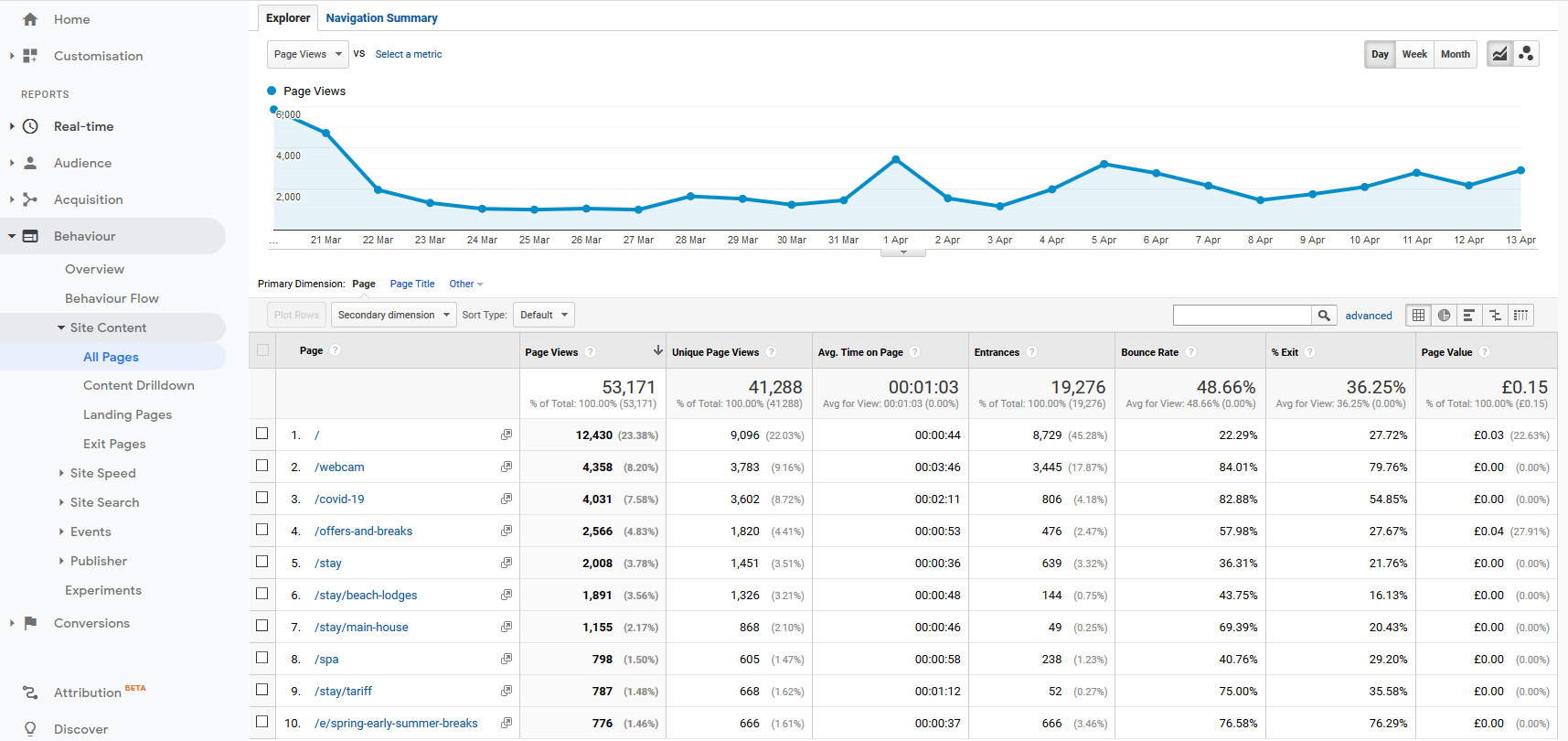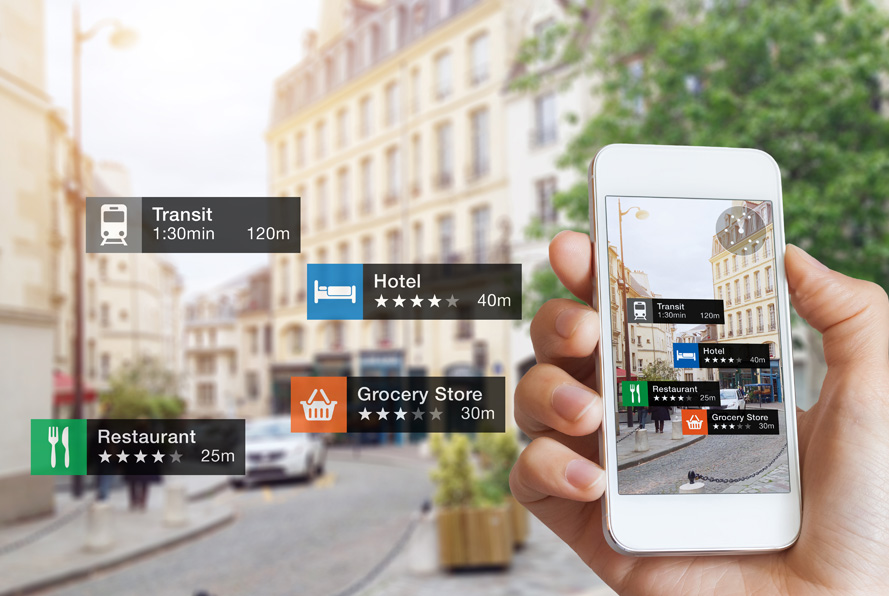Website and SEO Improvements You Should Make Now
Now is a great time hotel and holiday park owners to review your website in order to make changes now that will benefit you in the future. Using data is the best way to make business decisions, far better than gut feeling or anecdotal feedback. The steps outlined below will help you remain visible in search (while search volumes are rising) and by providing great, relevant content for the people that do get to your website.
45% of global consumers are spending more time online (during the crisis)
Remaining active and visible online through Search Engine Optimisation (SEO) is an important consideration for your business during times of increased reliance on the web. There are various SEO activities that you can carry out today that will help improve your long-term visibility on search engines.
Using data to improve your website
Looking at the huge amounts of data we have across multiple hotels and holiday parks there are some clear trends. Google Analytics is showing a drop in traffic for all properties of between 55%-75%.

If your Google Analytics is set up correctly, you can still use the data in Google Analytics to make business decisions right now.
Three areas that we recommend you spend time on are:
- Review most popular pages and add engaging content.
- Refresh and optimise your blog content.
- Get more customer reviews.
1. Review most popular pages and add engaging content
Insights from our data show the popular pages that people are visiting most include:
- Home page
- Any Coronavirus/FAQ pages
- General high level pages (rooms, spa, caravans etc)
- Booking engine
- Plus for those that have it webcams and wedding pages
For your property, spend a bit of time to follow these three steps.
Step 1 – discover which pages of your website are getting the most traffic, pay attention to the bounce rate - the higher the bounce rate, the less well the page is performing (we’d expect FAQ and webcam pages to have high bounce rates). A 30%-40% bounce rate is OK, anything pushing 50% or higher is worth reviewing. You should always look to lower whatever bounce rate you have.
The report you start with in Google Analytics is behaviour/site content/all pages. Set the date range to start from 20th March (when the current restrictions came into force) up to the present date.

Step 2 – Create engaging content. Not everything in SEO is technical, with more time, people are looking for engaging content. Content can earn high quality visitors from search engines if the webpage has high engagement and users find the information relevant. Review the content on the top viewed pages to ensure they have relevant messages and provide fun, useful and stress relieving content to boost your brand as we previously suggested on 1st April plus on our creative thinking page. For example:
- Homepage – clear links to your Corona FAQs. Make it easy for users to follow you on social. Make it easy for customers to sign-up to your email (consider a pop-up) and give an indication of the great content you are providing.
- Spa page - link to useful content customers can use at home such as downloadable pdf content such as a Little book of wellness or DIY wellness
- Restaurant page – provide store cupboard recipes and local foraging tips from the chef
- Webcam page – content to inspire a return… “the sunset will be waiting"
- Wedding page – add virtual tours and 2021 dates
Step 3 - Identified pages with high bounce rates and short time spent on the page - you should look at making some changes so users are finding useful information to their search queries. Content that users find relevant tend to receive higher traffic and higher rankings as search engines want to deliver the best answers for search queries. Blogs are perfect for creating engaging content that answer numerous search queries.
2. Refresh and optimise your blog content
Once you’ve created your engaging content above and within your blog, you can optimise the more common SEO elements.
- Find keywords to place through this content, perhaps you are trying to answer a specific question? Use elements of the question in your content.
- Optimise the meta title and meta description with keywords and within the specified search engine character limitsin your CMS.
- Compress any images so the page can load quicker, making the user experience better, this could prevent them bouncing off your page.
- Add image alt tags, say what you see. Image SEO is another great way for users to find your website.
- Finally, create Open Graph (OG) tags or Twitter Cards, share your blog on social media and drive traffic.

If this all sounds a lot of jargon, please do get in touch with us and we can explain or help out. Not technical enough? Here is some more SEO content: 10 Reasons Why Consistent SEO Matters Now.
3. Get more customer reviews
Assess (or create) your review strategy.

Search engines are very thorough in examining the Expertise, Authoritativeness and Trustworthiness (E-A-T) of websites. Reviews are an indicator of authority and trust, try build up your reviews on Google, Facebook, Tripadvisor or Yelp.
Look at registering your business on review sites and directories. This will help with establishing your SEO credibility and it will also help with your Local SEO, by providing your business details to local directories this will improve location-based search results for your brand name and business category.
More coronavirus marketing help and ideas
There is much more helpful information about what marketing you can do during the crisis and to help you with the bounce back when restrictions are lifted on our Coronavirus marketing help and ideas pages.

